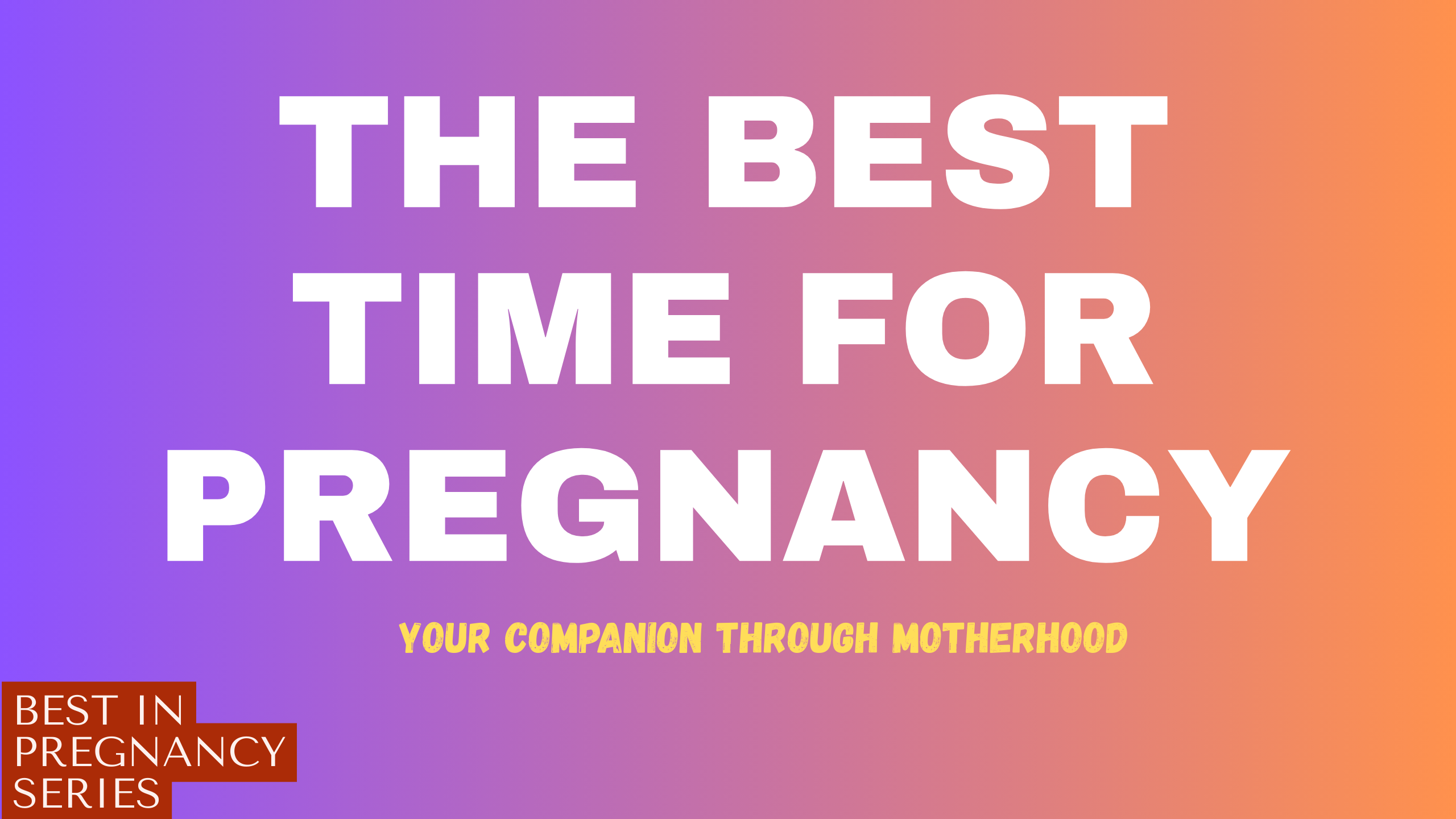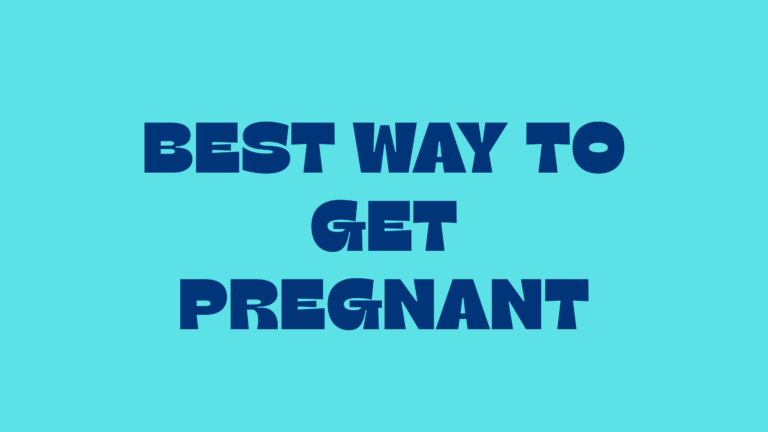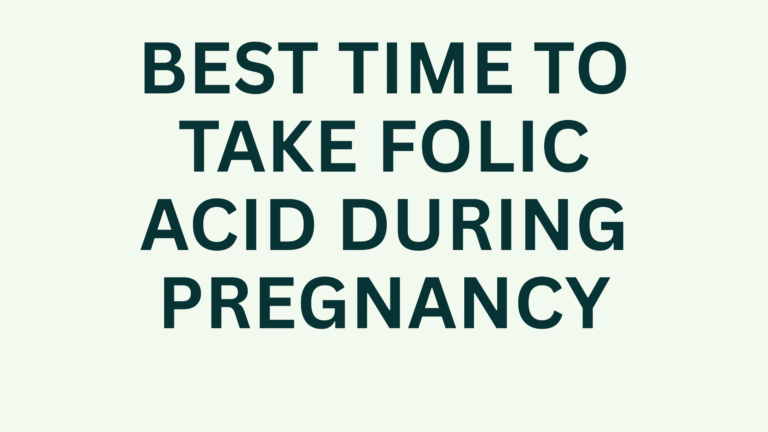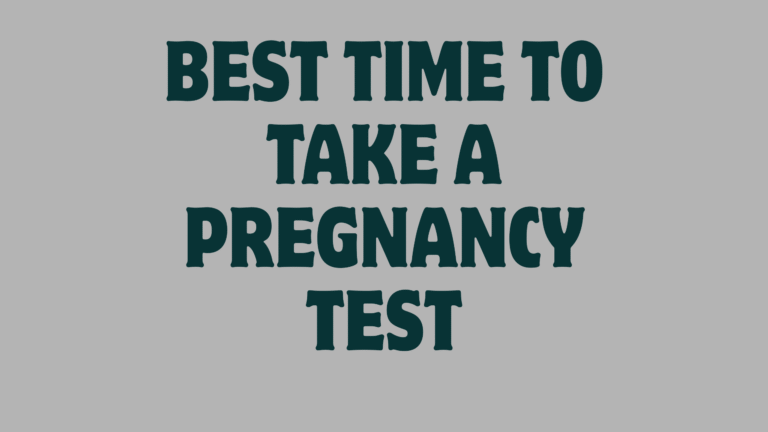The Best Time for Pregnancy: A Journey Through Science, Seasons, and Stories

Best Time for Pregnancy
When my friend Riya got married at 28, she thought pregnancy would happen instantly when she decided. But life had other plans. She kept wondering, “Is there really a best time for pregnancy? Should I wait, or should I try now?”
If you’ve ever asked the same question, you’re not alone. Almost every couple planning a baby thinks about the “right time.” The truth is—there’s no single magical date that works for everyone. But science, doctors, and even real-life experiences do give us clues about when the chances of conceiving are higher, when pregnancy is healthier, and when it feels emotionally right.
Let’s take a deep dive into the best time for pregnancy—from your biological clock, to your ovulation cycle, to even the season of the year.
Chapter 1: The Biological Clock – Age and Fertility
Think of your fertility like a blooming tree. In the 20s, the tree is full of green leaves. In the early 30s, it’s still strong but begins to shed a few leaves. By the late 30s, the tree has fewer leaves left, and in the 40s, the branches grow weaker.
Doctors agree:
- 20s to early 30s is often the best time for pregnancy biologically.
- Fertility peaks in the mid-20s.
- By 35, the number and quality of eggs start reducing.
- After 40, chances of pregnancy naturally decline sharply.
👉 But remember, this is just biology. Many women today conceive in their late 30s and even 40s with proper planning and medical support.
Chapter 2: The Monthly Window – Ovulation as the “Golden Hour”
When Riya and her husband finally decided to try, her gynecologist gave her a simple tip: “Track your ovulation.”
Why? Because in every cycle, there are only about 5–6 fertile days where chances of pregnancy are highest. The best time is usually 2–3 days before ovulation and the day of ovulation itself.
How to know your fertile days:
- Use an ovulation calculator or app.
- Notice signs like increased cervical mucus (egg-white texture).
- Take an ovulation test kit (like pregnancy tests, but for fertility).
👉 For most women with a 28-day cycle, ovulation happens around day 14. So, days 12–16 are the “best time for pregnancy.”
Chapter 3: Seasons of the Year – Does Timing by Weather Matter?
Interestingly, some studies suggest that seasonal changes affect fertility.
- In colder months, sperm quality improves.
- In spring, vitamin D levels rise, helping hormonal balance.
- Couples often conceive more during winter holidays because of reduced stress and more time together.
So yes—sometimes the “season of life” literally means the season outside your window.
Chapter 4: Emotional Readiness – The Heart’s Timing
Biology is important, but so is the heart.
- Are you and your partner emotionally ready?
- Do you feel secure in your relationship?
- Is your support system (family, friends, work) strong enough?
Riya once told me, “Even if my body was ready, I wasn’t ready at 25. But at 30, I felt stronger, calmer, and prepared.”
👉 Sometimes, the best time for pregnancy is when your heart says “yes.”
Chapter 5: Lifestyle & Health – Preparing the Body
The best time for pregnancy also depends on how well you prepare. Doctors often call this preconception care.
Checklist before trying:
- Take folic acid supplements (400 mcg daily).
- Eat a balanced diet rich in iron, calcium, and proteins.
- Quit smoking and alcohol.
- Maintain a healthy weight (both underweight and overweight can affect fertility).
- Get regular exercise and reduce stress.
👉 A healthy body makes any time the best time for pregnancy.
Chapter 6: When Life Doesn’t Go as Planned
Sometimes, even when couples try everything, pregnancy doesn’t happen right away. Riya and her husband tried for almost a year before conceiving.
Doctors usually advise:
- If under 35 → Try naturally for 12 months before seeing a fertility specialist.
- If 35 or above → Consult a doctor after 6 months.
There are advanced options like IVF, IUI, and fertility treatments that help many couples achieve their dream of parenthood.
Chapter 7: The Best Time for Pregnancy – Putting It All Together
So, when is the best time for pregnancy?
- By age: 20s to early 30s (biologically).
- By cycle: 2–3 days before ovulation and on ovulation day.
- By season: Winter and spring may have slight advantages.
- By heart: When you feel emotionally and mentally ready.
- By health: When your body is well-prepared.
Final Story – Riya’s Happy Ending
At 31, after months of tracking her ovulation and changing her lifestyle, Riya finally held her positive pregnancy test in hand. She told me, “It wasn’t about waiting for the perfect date—it was about finding the perfect balance of my body, my heart, and my life.”
And maybe that’s the real answer. The best time for pregnancy is not just about the calendar—it’s about the moment when science and soul meet.
About The Author
JYO JOURNEY
PregnancyKit – to provide real, honest, and easy-to-understand information for women who might be wondering, “Am I pregnant?” or “What should I expect now?” Every guide I write is based on what we wished we had known during our own journey.
Through PregnancyKit, I want to help women feel supported, informed, and confident from the very first symptom. Because I believe every woman deserves clarity, care, and a little less stress during one of the most important journeys of her life.


